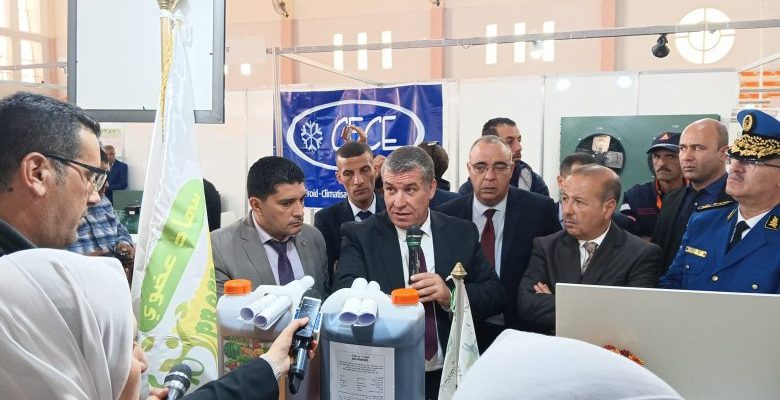
Algeria turns to digitization to modernize its agricultural sector🌾🛜
Cliquez ici pour lire en français
By adopting a digital agricultural registry, Algeria initiates a foundational project to modernize the sector. With the issuance of digital cards to farmers and centralized data management, the government aims to improve the efficiency of aid distribution, better manage resources, and strengthen the country’s food security.
A digital transformation strategy for agriculture🌾
Algeria has implemented a digital transformation plan covering various key sectors, including agriculture. This plan, championed by President Abdelmadjid Tebboune, is part of a comprehensive vision to modernize and strengthen the national economy. The national digital agricultural registry is a component of this strategy, aimed at improving administrative efficiency and providing farmers with modern tools to optimize their activities. This registry will give the government a centralized and reliable database on all agricultural operations in the country, including information on their size, crops, location, and specific needs.
A digital card for every farmer 📋
With the digital card issued to registered farmers, they will be able to access subsidies and public aid. This system aims to reduce administrative burdens and increase transparency in aid distribution. Each farm will be registered with precise data, allowing the government to understand its actual needs, adjust subsidies based on crop types, and prevent fraud. This approach ensures that subsidies reach the intended beneficiaries. Additionally, this card will provide farmers with a unique form of identification, making administrative follow-up easier.
Data centralization 💡
Centralizing agricultural data through the digital registry allows the government to have a comprehensive overview of the sector. This database serves not only to organize aid but also to optimize the use of natural resources, particularly water. Accurate and up-to-date data will enable authorities to implement irrigation policies tailored to regions most affected by drought. The government will also be able to anticipate shortages and adapt irrigation programs to minimize climate impacts on agricultural production.
Towards increased food autonomy 🍞
Like many other countries, Algeria largely depends on imports to meet the food needs of its population. With this registry, the state aims to support strategic sectors, such as cereal and legume production, to reduce this dependency and improve the country’s economic resilience. By having precise data on each farm’s capacity and production, the government can implement targeted support programs for key sectors and encourage farming practices that meet domestic demand. This initiative aims to ensure national food sovereignty by reducing the impact of international market price fluctuations.
The digital registry is not limited to urbanized areas. It also aims to foster development in remote rural areas where many farmers live. This project could create a domino effect by stimulating the economy in these regions, which would benefit indirectly from investments in digital infrastructure and training. In addition to improving access to aid, integrating rural farmers will allow for the mapping of previously undocumented areas, offering policymakers better insights into each region’s challenges and potential. This also paves the way for policies tailored to local realities, whether for water management, crop choices, or reforestation practices to combat desertification.
Challenges of infrastructure and digital inclusion 📶
Despite its advantages, the success of this project depends on solid digital infrastructure, particularly in remote rural areas where Internet coverage is weak or nonexistent. To overcome this obstacle, the government is considering partnerships with telecommunications operators to improve Internet access in rural areas. The project could also benefit from new technologies such as satellite Internet, providing connectivity even in the most isolated regions. However, the success of this digital transformation requires significant training efforts. Training and support programs will be implemented to raise awareness among farmers about digital tools and teach them how to use their digital cards.
If successful, this digital registry could serve as a model for other countries facing similar challenges in agricultural management and food security. Algeria could thus position itself as a pioneer in agricultural digitalization in North Africa. The Algerian model could encourage other nations to adopt digital solutions to optimize their agricultural sectors, improve resource management, and promote sustainable, resilient agriculture in the face of climate challenges.
Future prospects 🌱
Beyond technical aspects, this digital registry represents a commitment to a fairer, more transparent, and sustainable agriculture. By enabling precise tracking of resource consumption and fairer aid allocation, the project contributes to more responsible land management. This more responsible approach will help build a resilient agricultural sector capable of facing the challenges of climate change while ensuring food security for future generations.
Do you think this kind of digital transformation is the ideal solution to strengthen food security and agricultural efficiency ?
Follow our news every day on WhatsApp directly in the « Updates » tab by subscribing to our channel by clicking here➡️TechGriot WhatsApp Channel Link 😉






